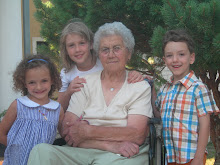I have a friend whose brother has a problem with alcohol. He goes on massive binges. Not surprisingly, these are very self-destructive – causing significant damage to his relationships, his career, his health, etc. Watching this is, of course, heart-wrenching to the man’s siblings, to his mother, to anyone who knows the wonderful person that he is.
It is awful to see a loved one in pain. For many of us, the inclination is to help in any way that we can. You want the suffering to end and the loved ones life to be better. For my children or immediate family, I’d do just about anything to avoid the anguish, soothe them if it does happen, or take it on myself instead. The saddest fact is that, as often as not, there’s nothing that I can do to help. Or it feels like that anyway.
In last month’s blog I wondered about the challenging question – “who is my neighbor?” A more eternal and poignant question for me in my life has been - how to best care, not for a neighbor or stranger-that-I-have-yet-to-meet, but those closest to me, that I already know and love?
A major aspect of love is to provide for someone’s need. In the end, as we all know, you can’t help someone who is not inclined to help themselves. Still being familiar with the circumstances or seeing a pattern repeated time and time again, begs for input. I’ve been trying hard my whole life to gently and diplomatically point something out or make a suggestion. In that instance, what if my love is rejected? It’s distressing to watch someone you love make (what appear to be) bad decisions. What do I do when I see a need that my suffering loved one refuses to admit? Still, my best intentions have been, more than once, misunderstood. I second-guess myself when my suggestions and attempts are seen as self-righteous judgments.
I recognize that making a suggestion implies to that loved one that you know better. I like to think that my meddling comes from a place of empathy and not smugness. It’s not about having the answers or trying to tell someone else how to live their lives. It’s not about being superior. Sometimes an outside perspective does allow for greater clarity. It comes from love. It comes from a place of sadness. It’s borne of caring too much to just stand on the sidelines and watch another train wreck in slow motion. The dynamics are often such that those struggling keep those most inclined and able to help at a safe distance (for them).
I have a couple of metaphorical alcoholics in my life. Yes, I struggle mightily with detaching myself from their struggles. I can’t turn and walk away. Sometimes I think that I am learning to. I am not always sure that I want to. I struggle with what the Christian thing to do is. I believe that our greatest task in life is to be our truest selves and achieve our fullest potential. Further that our relationships are key to that fulfillment.
We all have blind spots. We can choose to have friends and family that point them out and challenge us to be our best selves. Or not. The former is wonderful, the latter a damn shame.
Saturday, February 23, 2013
Subscribe to:
Posts (Atom)

